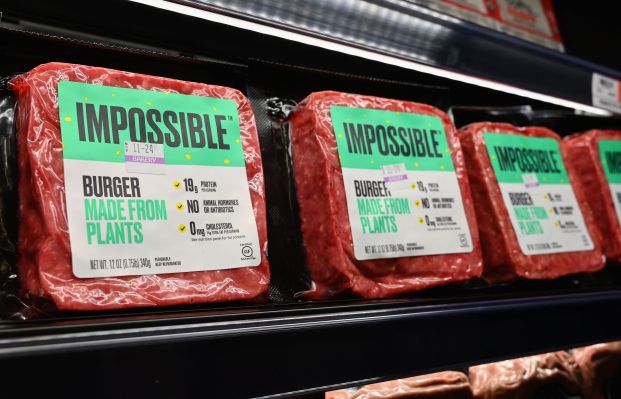Impossible Foods planning to lay off 20% of staff • TechCrunch

Impossible Foods, which makes plant-based nuggets, burgers and patties, is reportedly laying off 20% of its staff, Bloomberg reported first.
According to the story, the 12-year-old company currently employs about 700 workers, which could then affect over 100 employees. This comes as the company made a 6% reduction in its workforce last October.
Impossible Foods did not respond to a request for a comment about the layoffs.
While we know layoffs can happen anytime, it seems like the company was doing well. Earlier this month, the Redwood City, California–based company reported a year of record sales that included over 50% dollar sales growth in 2022. The company also touted that its Impossible Beef product was “the best-selling product by volume of any plant-based meat brand in the U.S.”
Months before that, CEO Peter McGuinness said in an interview with Bloomberg Technology that the company had a strong balance sheet, good cash flow and growth of between 65% and 70%.
The most recent stats were given as the company also announced it brought on Sherene Jagla, previously senior vice president and general manager at Newell Brands, as Impossible’s first chief demand officer. Her role is to “bring its sales, marketing, insights and product development teams into one integrated function under her leadership as it prepares for its next phase of growth.”
In total, Impossible raised $1.9 billion in venture capital, according to Crunchbase data. The last time the company raised capital was a $500 million Series H round in November 2021, and it was at that time that the company was valued at $7 billion.
Founder Pat Brown spoke at the TC Sessions: Climate event last June and said that his vision for the company was to be the conduit that helps the world be less reliant on animals for food.
“I don’t think the company will have a monopoly on making meat, fish and dairy foods for the whole world, for a lot of reasons,” he explained. “The critical function that we service is basically serving the scientific problem and developing the technology platform that enables it. Right now, we’re the only company in the world that has seriously done that, and obviously to continue to fund the business, we’re in the food business. My guess is in 10 years or so, to accelerate the scaling, we’ll be working with a lot of partners licensing the technology and allowing partners to carry the ball for us.”
Even though Impossible and other plant-based companies have tried to go mainstream via grocery stores and restaurant partnerships, like Impossible’s with Burger King, plant-based meat remains quite a niche industry as a Yahoo article pointed out last week.
My colleague Tim De Chant also noted that when meat prices rose during the global pandemic, the gap between traditional meat and meat alternatives was closing. However, that changed with the recent inflation. And the scale still isn’t there as Stray Dog Capital’s Lisa Feria explained to TechCrunch.
“Early-stage companies in the space don’t always have the scale to offer pricing that is on par with traditional dairy or meat products,” Feria said. “Ultimately, when the industry is at scale, we expect many plant-based alternatives to be more affordable.”
Impossible is not the only plant-based meat alternative company to make layoffs in recent months. In a regulatory filing made last October, Beyond Meat said it planned to lay off about 200 employees, or 19% of its workforce, as part of cost-saving measures as sales were slumping.






